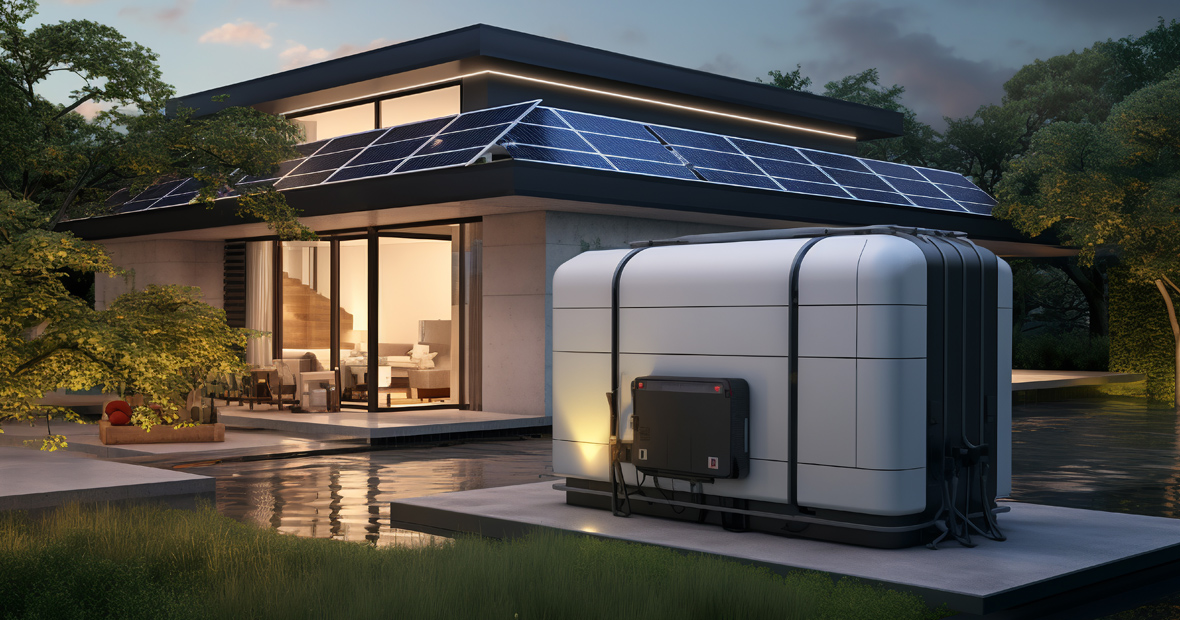
Embarking on a journey through the rapidly evolving landscape of energy production, the spotlight shines brightly on the emergence of hydrogen generators. As a transformative force in the global energy market, these powerful devices are unlocking immense potential and ushering in a new era of clean, efficient, and sustainable power. This shift is being driven by a combination of factors - from technological advancements in electrolysis to progressive policy measures and robust investment initiatives. Amidst the burgeoning markets for hydrogen fuel, the implications are far-reaching and brimming with opportunity.
Unlocking the potential of hydrogen generators in the global energy market
As the urgency for carbon neutrality accelerates, the global energy market witnesses a new era of transformation. Among the alternatives, hydrogen fuel stands out with an impressive potential for revolutionizing energy production.
Emerging markets for hydrogen fuel : opportunities and forecasts
Hydrogen, as an abundant and renewable energy source, has captured significant attention worldwide. With a surge in its demand, new markets are emerging to exploit this potential power source. Forecasts indicate that these markets are set to experience exponential growth in the coming years. The use of hydrogen generators in these markets could substantially contribute to a greener and sustainable energy future.
Role of policy and regulation in shaping hydrogen energy adoption
Policy and regulation play a pivotal role in the widespread adoption of hydrogen energy. With the right regulatory framework, the use of hydrogen generators can be promoted effectively. Countries across the globe are formulating policies to facilitate the transition towards hydrogen fuel, thereby unlocking its true potential. Clear and supportive policy measures are vital to encourage investment and collaboration in this sector.
Investment and collaboration : key drivers for hydrogen generator technologies
To fully exploit the potential of hydrogen generators, substantial investment and collaboration are required. Corporations are now recognizing the importance of such partnerships to develop new, efficient, and cost-effective hydrogen generator solutions technologies. These collaborative efforts are expected to bring forth significant advancements in the field of hydrogen energy, propelling the global market to new heights.
Advancements in electrolysis technology: paving the way for green hydrogen production
Green hydrogen production, powered by electrolysis technology, has taken strides in recent years. Water electrolysis has become more effective and cost-efficient due to technological advancements, making green hydrogen a viable alternative for various industries, including automotive and energy. A comparison between hydrogen production methods reveals that electrolysis stands out as an environmentally friendly option.
Electrolysis contributes significantly to reducing greenhouse gas emissions, a primary concern in today's world. However, widespread adoption of electrolysis for hydrogen production faces challenges and hurdles. Future prospects for electrolysis and green hydrogen as a renewable energy source are, nonetheless, promising, owing to government policies and corporate initiatives promoting electrolysis use.
Scientific research and discoveries in the field of electrolysis continue to break new ground, with market trends and investments in electrolysis technology and green hydrogen showcasing positive growth. The environmental benefits of green hydrogen, especially when compared to fossil fuels, are undeniable. Technological innovations have played a crucial role in enhancing the efficiency of electrolysis, with global initiatives now aiming to adopt green hydrogen as an alternative energy source. Key players in the electrolysis and green hydrogen sector are instrumental in this transition.
Integrating hydrogen power with renewable energy sources for a sustainable future
Revolutionizing energy production is a necessity in the modern age, and the rise of hydrogen generators is a clear sign of this inevitable shift. Striving towards a more sustainable future, blending hydrogen power with renewable energy sources such as solar and wind power is a significant stride in this direction. This fusion of technologies leads to an amplified efficiency in energy production, setting a new benchmark for renewable resources.
Combining solar and wind power with hydrogen production for maximum efficiency
The seamless integration of different technologies, backed by practical examples and case studies, has been pivotal in driving the adoption of hydrogen-based energy solutions. Recent research and future forecasts also reaffirm the potential of hydrogen energy, acting as a catalyst in propelling this burgeoning sector.
Innovations in water electrolysis : enhancing the viability of hydrogen as a renewable resource
While technical and economic challenges persist, innovative solutions continue to emerge, helping overcome these hurdles. Scientific data on the potential of hydrogen to reduce carbon emissions and support energy sustainability is a testimony to the transformative power of this high-efficiency energy source.
Overcoming challenges in hydrogen storage and distribution infrastructure
As part of the significant shift towards cleaner energy solutions, one cannot overlook the rising prominence of hydrogen generators. With a myriad of applications across diverse industries, hydrogen offers a unique solution to the climate crisis, replacing traditional fossil fuels and significantly reducing greenhouse gas emissions.
However, the development of this promising alternative energy source is not without its challenges. One of the major hurdles lies in the establishment of a robust hydrogen storage and distribution infrastructure. The type of storage systems used can vary greatly, depending on specific needs and circumstances. This necessitates a comprehensive understanding of all the practical considerations involved in setting up an effective hydrogen infrastructure.
